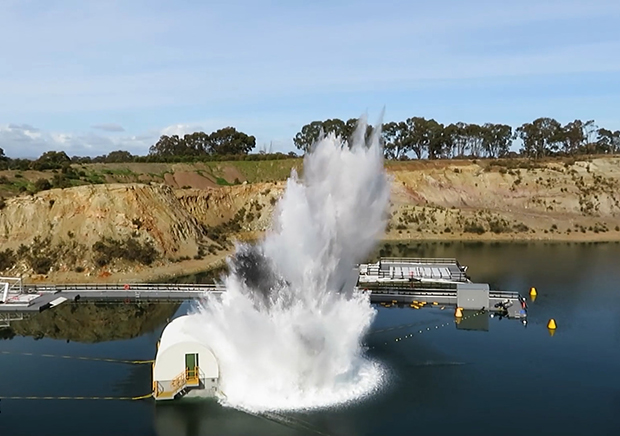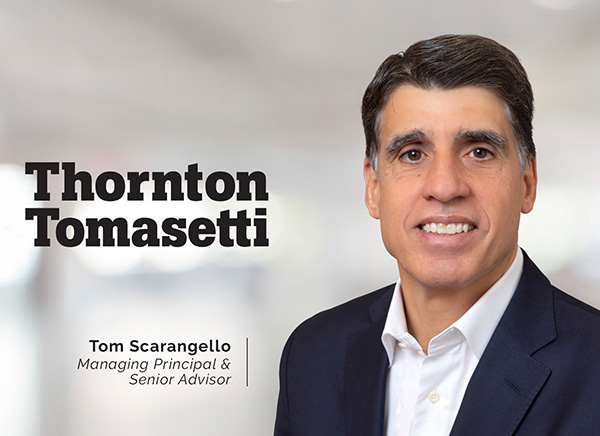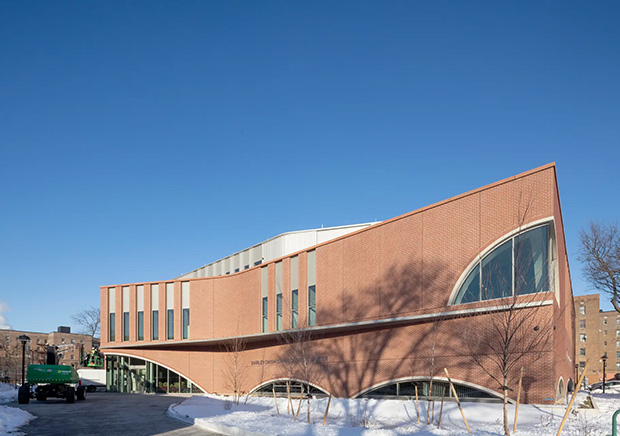
Florida SB 4-D Building Safety Law
Worried about the Florida Senate Bill 4-D mandates for condominium inspections and reserve funds? We can help.
What Does The Law Require?
The Florida Legislature passed Senate Bill 4-D in in May 2022, which creates new requirements for condominium and co-op buildings three or more stories tall. SB 4-D establishes a statewide inspection program, requiring condominium and cooperative associations to conduct milestone structural inspections and perform structural integrity reserve studies to ensure that condominium and cooperative buildings are safe for continued use.
Here are some key provisions of the new law.
Phase-One Milestone inspections
- Milestone inspections can be performed by team of professionals with the Florida-based architect or engineer acting as the design professional in responsible charge of work and reports signed and sealed by team members.
- Require visual inspection of primary structural members and systems.
- Identify any substantial structural deterioration that negatively affects the building’s general condition, integrity, or life-safety of occupants.
- Document whether unsafe or dangerous conditions were observed.
- Report to include determination of any items requiring further inspection and necessary maintenance, repair or replacement of structural components.
- The association is responsible for costs in which governing documents say the association must maintain, not necessarily all costs from inspection.
Phase-Two Milestone inspections
- If, after a Florida-licensed engineer or architect performs a phase-one inspection, a phase-two milestone inspection is necessary, it may involve materials testing, probing or removal of finishes, or non-destructive testing such as ground penetrating radar.
- A report describing the manner and type of inspections, stating whether unsafe or dangerous conditions were observed, identifying and describing the extent of any substantial structural deterioration, and recommending maintenance, repairs or replacement of structural components as appropriate.
- Failure to progress required repairs within a year of the phase-two inspection report submission requires the municipal authority to assess if the building is safe for continued occupancy.
Details & Best Practices
- We’ve learned from experience that even when visual signs of deterioration are not obvious, additional testing or probing may be necessary based on the age and composition of structural materials.
- All reports must be signed and sealed by the licensed professional.
- Inspector-prepared report must be issued to associations and local building officials, with a summary posted in the building and provided to unit owners.
- A willful and knowing failure by an officer or director of an association to have a Milestone inspection performed is a breach of the officer’s and director’s fiduciary responsibility.
Structural Integrity Reserve Studies
- The law requires reserves to be funded, and the study determines the reserve funds required for future major repairs and replacement of the common area based on visual inspection of the common areas.
Requirements of the Study include:
- Visual inspection performed by an individual certified as a reserve specialist or professional reserve analyst by the Community Associations Institute or the Association of Professional Reserve Analysts.
- Identification of common area elements inspected.
- Estimated remaining useful life of each element.
- Replacement cost or deferred maintenance expense of each element.
- Recommended annual reserve amount needed for replacement or deferred maintenance expense of each element.
- Studies must be maintained for at least 15 years after completion. Residential condominiums three stories or higher must have structural integrity reserve study every 10 years.
Fiduciary & Financial Requirements
- Effective December 31, 2024, unit-owner controlled associations must properly fund items identified in the structural integrity reserve study.
- Using or reducing these funds is prohibited and funds can only be used for the specific item identified in the study.
- It is a breach of a board member or officer’s fiduciary duty if an association fails to complete a structural integrity reserve study.
- It is a breach of the director or officer’s fiduciary duty if an association fails to properly fund reserves related to items identified in the Structural Integrity Reserve Study.
- Failure to comply with SB-4D can result in personal liability on the part of board members.
Details & Best Practices
- Roofs
- Load bearing walls
- Primary structural members as defined in s.627.706
- Floors
- Foundations
- Fireproofing & fire protection systems
- Plumbing
- Electrical systems
- Waterproofing & exterior painting
- Windows and exterior doors
- Any item with a deferred maintenance expense or replacement cost that exceeds $10,000, if failure to replace or maintain negatively affects the building’s structural integrity.
- While it's not perfectly clear, the title suggests that only elements related to building structure fall within the required scope of the studies.
- The study should at minimum include structural aspects of these systems:
Because SB-4D is a new law and still open to interpretation and commentary through the end of 2023, additional work may be required to comply with changes to the law as new information is issued by the Florida Legislature, Florida Building Commission and Florida State Fire Marshall.
A building is conceived when designed, born when built, alive while standing, dead from old age or unexpected accident. . . . The accidental death of a building is always due to the failure of its skeleton, the structure.
We Can Help, Here's How
Experience Counts
With more than 50 years of experience in forensic investigations and assessments, our licensed engineers have the knowledge to interpret the sometimes-unclear and still-evolving provisions of the law. Because we frequently analyze building failures – from inconvenient performance problems to catastrophic collapses – we’ve learned what to look for. And our experience in designing new structures, including residential buildings, informs and enhances our forensic capabilities.
All this experience means we can provide thorough, detailed and accurate milestone inspections that put safety first.
Local Know-How
We’ve been in Florida for more than 40 years, doing both design and forensics. So we know the regulations in jurisdictions up and down the state and we can help you navigate the overlapping requirements of local and state laws.
Customized Inspection for Your Building Type
Every building is different. That’s why we don’t just check boxes on a list, we tailor our approach to suit your structure. Our staff includes specialists in a variety of building types, including concrete, masonry, steel and wood. And with four offices in Florida, we have the capacity to provide personal attention to every project we take on.
Technology & Technique
If a phase-one inspection uncovers signs of deterioration, these tools can help determine the severity of the problem and more accurately estimate the extent of repairs needed. And problems caught early are often less expensive and less disruptive to fix.
We use an array of tools and technologies to assess structures; analyze the extent of any deterioration; and record, manage and communicate supporting data, including:
- Drones. We have a team of FAA licensed drone pilots in Florida who are trained to safely and effectively go where sending people is difficult or even impossible. Still, video, and infrared cameras can capture a wide range of data.
- T2D2. Uses artificial intelligence to analyze video and images, detecting and flagging damage and mapping it to a photogrammetric model.
- Photogrammetry. We can create a detailed 3D model from still or video images. More-affordable alternative to laser scanning.
- Ground penetrating radar & pachometers. Helps verify rebar placement, determine optimal locations for core extractions, identify air voids beneath slabs on-grade, and locate grouted bars in CMU walls.
- Ultrasonic testing. Lets us identify concrete defects – voids, delamination and cracks – without destructive methods.
- Half-cell potential testing. Used to diagnose corrosion of steel reinforcement in concrete at its earliest stages to prevent serious problems from developing.
- Tiltmeter monitoring systems. Continuously tracks building movement and collects data through a remote web interface that can also generate alerts if movement exceeds recommended values.
- Demountable mechanical strain (DEMEC) gauges. A cost-effective and reliable way to monitor crack movements in concrete. Wireless strain gauges offer remote monitoring for hard-to-access locations.
- Acoustic emission testing. Can identify cracks in steel at their onset.
- Forensic Informational Modeling (FIM). We developed a better way to manage and analyze data in a 3D or 4D model. Data is linked to model components for easy retrieval, keyword queries and statistical analysis. Our FIMs can quickly generate reports and visualizations for clear communication of complex technical issues.
Once the data is captured, our multidisciplinary experts leverage decades of experience in building design and investigation. We perform advanced analytics to understand the issues, then clearly communicate our findings.
In-House Repair & Retrofit Capabilities for One-Stop Shopping
Because we're designers as well as investigators, we can use our findings to design repairs to make your building safe and resilient. And the first-hand information from our inspections can guide our remediation design, with no time wasted in searching for a new provider or catching up on the current condition of the building. Our goal is to help you return your building to its proper condition quickly, safely and economically.
We'll Contact You
We'd love to hear from you! To contact us with questions or comments, complete the form below. If you'd prefer to speak directly to a firm representative, please reach out to our Fort Lauderdale, Miami, Tampa or Orlando office.














